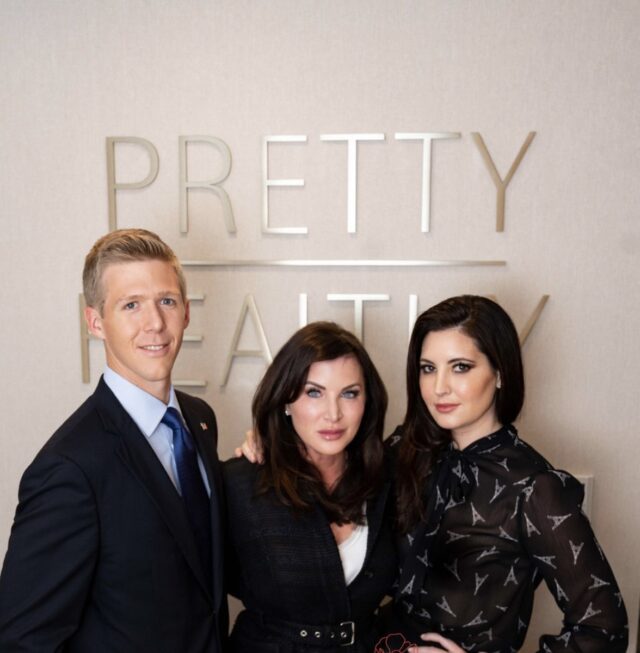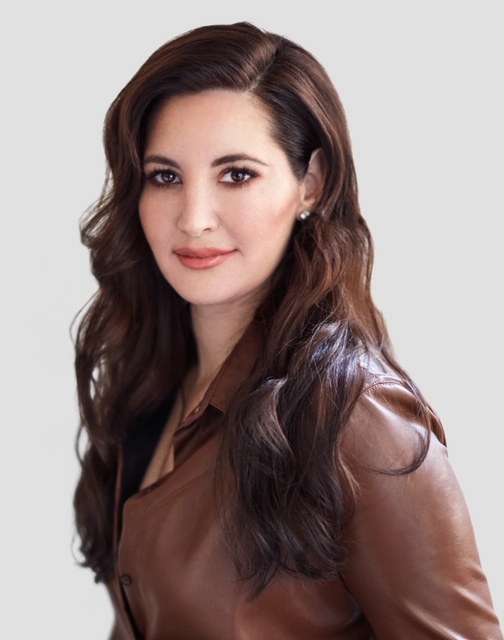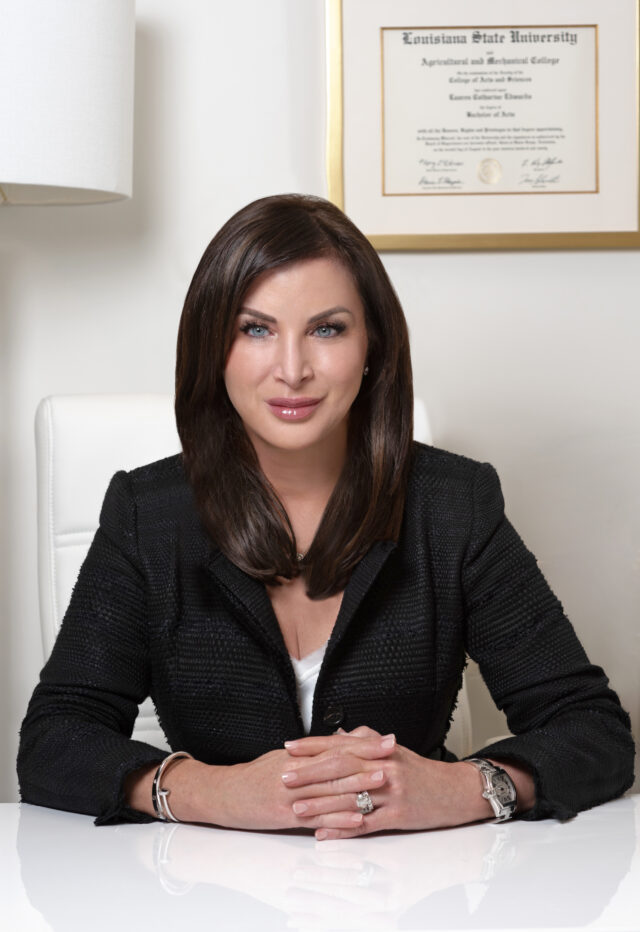
A destination for New Yorkers to take charge of their well-being through a holistic lens, Pretty Healthy offers telemedicine, teletherapy and in-person treatments in New York City and the Hamptons. With a team of experts specializing in functional and integrative medicine that honors the mind-body connection, the practice is led by Dr. Roxanna Namavar, a board-certified psychiatrist and fellow in the American Academy of Anti-Aging. Pretty Healthy focuses on cellular health and rejuvenation, with a fleet of services that includes in-home anti-viral infusions, glutathione and peptide treatments, plus mental health and aesthetic therapies. Here, Purist speaks with three of the organization’s top minds, founder Roxanna Namavar, Pretty Healthy COO and licensed psychotherapist Lauren Williams, MA, MEd and board-certified internal medicine physician Leland Stillman, MD.

PURIST: What inspired you to study medicine?
Dr. Roxanna Namavar: My father is a nuclear physicist, so conversations about how we think and interact with the outside world were always present in my home. He worked hard to support my curiosity in science and how that impacts our lives in a tangible way. Ultimately, all of my patients, (and myself) are trying to create the life that we prefer, and it’s impossible to do that in a body that doesn’t feel good, emotionally, physically, mentally or spiritually. My intention for this practice was to create a space to achieve a space that supports optimal quality of life for myself and my patients.
PURIST: What are the origins of the practice and how has it grown since then?
RN: I did my residency at the University of Virginia, and did a lot of research with the Division of Perceptual Studies. I also studied at the Barbara Brennan School of Healing, which helps connect the concepts of physics/energy and psychology together. Combining my traditional Psychiatry residency, my fellowship in Functional Medicine and Anti-Aging, and my experience with these more ‘alternative’ approaches, is what created the philosophy behind Pretty Healthy. In creating this integrated practice, I have been greatly impacted on how important patients’ perceptions are, and how much they impact the perception of wellness. Whether that’s the way one perceives how the body feels in response to various stimuli (incorporating environmental, light and nutritional factors, to name a few), or the way one perceives’ and processes emotions, or sense of purpose/spirituality and trust, each piece is interconnected with the others. In the beginning of my practice, I focused mostly on mental health and found that most patients have the same goals; to feel better in their body, have more mental clarity/improved mental health, and look and feel younger, and this requires treating the brain IN the body and emotional wellness. Ideally each patient has access to myself and Dr. Stillman so, together, we may create a conscious plan for optimal quality of life.
PURIST: How does functional and integrative medicine inform your psychiatry treatment strategies?
RN: We can’t treat the brain in a vacuum. Your body is a big, complicated feedback mechanism. We really have to look at what’s going on in the body, brain, environment, nutritionally, emotionally and spiritually, to create a complete plan to support ourselves and our patients. For example, there are studies that show gut heath will change your neurochemicals, which will change your perception of your world and change the way you feel daily. If we don’t also treat your gut, we can’t truly focus on your mental health. Since so many patients present and struggle with gut health, We often offer customized IV therapies (all of our infusions and protocols are customized for the patients based on extensive functional lab work). Bottom line, the current model for mental health and physical treatment doesn’t work for many people specifically to optimize wellness. My intention was to create a space where we get to the root of cellular functioning, optimize it, and create an overall better quality of life, rather than trying to put a bandaid on whatever the presenting ailment. Getting to the root of issues is the basis of cellular and functional medicine, and we believe this is the future of medicine.
PURIST: How do the aesthetic treatments Pretty Healthy offers factor into wellness?
RN: We have a medical esthetician on staff and offer facial injectables and various other skin treatments. In many cases, complaints about aesthetics are also related to internal health, (autoimmune disorders etc) so we try to treat the full body including the outside. The intention is to create a space that focuses on quality of life, and for a lot of people that includes feeling good about the way they look. We work hard to provide as many options as possible, that are in alignment with the philosophy of our practice.

PURIST: How does Pretty Healthy promote alignment between the physical body and emotional health?
Lauren Williams: We are interested in preventing disease and keeping people out of hospitals, and want to support immune and brain function. You want to be living your best life at whatever age you are, and that is what functional medicine is about. We try to make people feel and look as good as possible for as long as possible. We also focus on the mind and spirit. Dr. Namavar is a psychiatrist in addition to a functional medicine practitioner, and I am a psychotherapist.
PURIST: What steps are you taking to help patients manage the unprecedented stress and heartbreak surrounding the pandemic?
LW: Some people are terrified. A lot of people have lost their businesses; even people who are wealthy are very concerned. We help walk them through that and let them know it will be over soon, and remind them to keep a positive attitude and be grateful for what they have. I’m also helping couples navigate the increased periods of time spent together during quarantine, how to work from home together, etc. Unfortunately, we may see some divorces come from this. But not in my patients! I try to encourage couples to bond through this tough time, versus taking the stress out on each other.
PURIST: You offer couples therapy, which incorporates the Gottman Method. Tell us about how this works?
LW: I’m a level two Gottman-trained therapist, and am also completing a seminar on how trauma and PTSD can affect a couple. The Gottman Method is a scientific way to determine whether a relationship will work or not. There are lots of interventions we can use for couples, including implementation of productive communication techniques, free from judgment or defensiveness, to express feelings effectively rather than aggressively. There are also rituals and techniques, like one called “love maps” that can change people’s lives. The Gottman Method also teaches “bids,” or ways that a partner attempts to deescalate during conflict. Couples who can recognize and acknowledge each other’s “bids’” are more likely to be successful.
PURIST: How has your personal experience with childhood trauma informed your treatment strategies?
LW: There are so many people who have experienced childhood trauma, and my experience has helped me empathize with my patients and reparent them. I try to give unconditional acceptance and positive regard to my patients. I try to go the extra mile and show them what that looks like. For example, I have a patient who is looking for a job, and I’ll text her ‘good luck’ before an interview, and check in regularly. I also deal with a lot of women in particular who have Imposter Syndrome: They’re incredibly successful people who’ve gone to Ivy League schools, but feel worthless. I really try to empower women and help them get their sparkle back.
PURIST: How can practicing self-care, a healthy diet and exercise influence our mental health, and what do you recommend for people who find it difficult to establish these healthy practices in everyday life?
LW: It’s important to that mind-body connection. Start small, like taking a walk around the block. If you get COVID, you want your lungs to be strong. Make sure you take care of yourself and eat as healthy as you can. Exercise, pray or meditate, anything that makes you feel better. The stress of what’s going on in the world right now is overwhelming, and it’s about stopping and saying, ‘You know what, I’m going to make me a priority.’ You must come first, and you can build upon that. Have boundaries. People are working 24/7, so maintaining a designated start and end time, having a nice dinner with your spouse or watching a good movie will establish a healthy routine.

PURIST: What sparked your interest in the power of holistic and natural medicine? What aspects of your training have informed these beliefs?
Dr. Leland Stillman: I grew up in a household where we used a lot of alternative medicine. I became a doctor because I saw a lot of value in both the conventional and alternative approaches to medicine, and I wanted to pursue the highest level of training possible and know everything from start to finish. I found in my own experience that people who are advocating for more natural, holistic approaches were having great success keeping people healthy and out of the hospital, which is what I always wanted to do. I completed medical school at the University of Virginia and went into internal medicine, which is basically the speciality of caring for sick adults. I worked as a traveling doctor for a few years and have now started my own private practice in my hometown of Richmond, Virginia. Dr. Namavar contacted me in August of this year and recruited me to join Pretty Healthy, and with current events, I’ve been practicing remotely as a part of the Pretty Healthy team.
PURIST: Western medicine tends to treat symptoms rather than address the roots of a patient’s concerns. How does a functional medicine approach differ?
LS: My approach is to examine a patient’s total environment, starting with their air and water quality, their mindset, what they are eating and even how they’re eating it. Once I have that whole picture I evaluate how their unique physiology is working for or against them. I look for hidden nutritional deficiencies, signs of toxicity from the environment, or imbalances in their metabolism and lifestyle. We then make interventions based on the evidence we have, and work together to create the optimal diet, lifestyle and environment for that person.
PURIST: How would someone’s environment affect their health?
LS: A lot of people don’t appreciate how powerful the environment is in terms of their health. Our air quality, water quality, all of what we’re exposed to affects how our bodies function and what we do. For example, your mindset will determine what hormones or neurotransmitters are being released by your brain and that will alter how your body is burning calories, using micronutrients like minerals, vitamins, B vitamins, any vitamin. Our body creates and responds as best it can to the signals from the environment, so you can survive, thrive and succeed.
PURIST: Tell us about Pretty Healthy’s in-home antiviral infusions. How do these work and what are the benefits?
LS: There are many nutritional factors that determine someone’s resistance to a virus. How sick someone gets depends upon how well and how quickly their body handles it. People who are young and robust and nutritionally replete have the right vitamins and minerals, so they recover very quickly. For people with lots of underlying medical conditions, the immune system sort of gets behind the ball and then an inflammatory cascade can be set off, which then creates a perfect storm. The body can then be overwhelmed by the inflammation produced by the immune response, resulting in multisystem organ dysfunction, respiratory failure and more. The whole idea behind using infusions to treat people early for any illness is to give the body more of what it needs in order to aggressively control any kind of infection so it doesn’t get out of control. We make sure that the underlying imbalances and diseases that predispose one to a severe viral course are no longer an issue by replacing minerals and vitamins—including vitamin C—and utilizing herbs, light therapy and clearing toxicity in the patient’s environment.
PURIST: You also do phototherapy work. What does this entail?
LS: One of my fascinations is the effects of light on life. Broadly speaking, there are two ways to use light to promote health. The first uses infrared frequencies in the red portion of the light spectrum to promote tissue regeneration, healing and energy production. So I will work with my patients to find the right devices or treatment regimen to address their chronic medical conditions, whether it’s chronic pain, fatigue or poor sleep, because bright-red light or infrared light during the day will actually improve your sleep at night because it boosts your melatonin levels. Second, you can use light in the visible spectrum, and this is where SAD (seasonal affective disorder) lights come into play. The stimulus for your body to produce hormones and neurotransmitters is visible light. When you put animals or humans in a dark environment, levels of many different biomolecules will drop, and neurotransmitter and hormone levels will rise spontaneously when there’s more light striking the retina, and then that signal gets transfused into the brain. However, SAD lamps may not incorporate infrared light. One of my concerns is that blue and green light actually have the same aging effects on skin that ultraviolet light has. We’ve moved indoors and created these cold lights that are free of red infrared light, and now we have these rampant epidemics of skin cancer, and instances of psoriasis and eczema. I recommend that my patients try to find a balanced light environment.
110 E 60th St #900, New York; 646.481.0156; prettyhealthynyc.com



